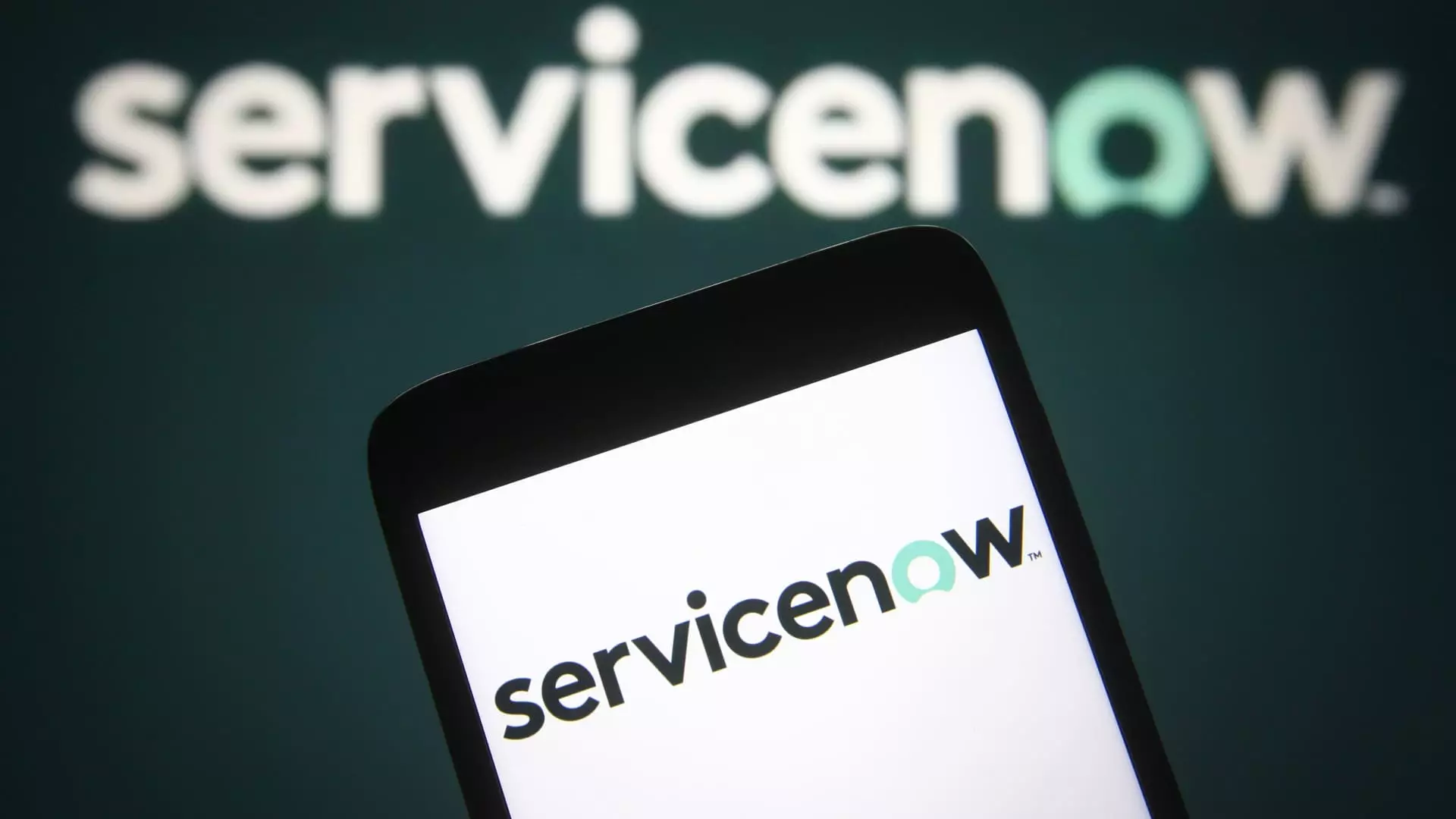In an era where economic uncertainty reigns supreme, it’s refreshing to see a company like ServiceNow defy the odds. Their recent first-quarter financial results caused a clear stir among analysts and investors on Wall Street, as the software firm aced both revenue and earnings expectations. Analysts, typically cautious in today’s turbulent climate, erupted into an uncharacteristic chorus of praise for ServiceNow, reflecting a broader, positive sentiment in an otherwise hesitant market. Many observers can’t help but take notice of what this means—not just for ServiceNow, but also for the technology landscape as a whole.
Despite a generally bearish outlook regarding tech spending in light of potential economic slowdowns, ServiceNow’s performance sends a resounding message: not all software companies are equally impacted by macroeconomic conditions. The firm’s robust results indicate both resilience and a strategic positioning that marks it as an attractive choice for investors who are growing wary of an economy teetering on the brink of recession.
Analysts in Agreement: A Winning Combination
Several prominent financial institutions have echoed this optimism, each presenting their case as to why ServiceNow is poised for sustained growth. The resounding theme among these analyses is the company’s unique approach to market growth, characterized by an impressive total addressable market (TAM) that they estimate could reach a staggering $275 billion by FY26. This encapsulates ServiceNow’s potential—it’s not just a temporary win but rather a significant milestone toward long-term success.
JPMorgan’s Mark Murphy underscores this by projecting a 25% upside with his $1,020 price target. Murphy’s remarks about growth at scale and robust cash flow generation bolster the narrative that ServiceNow is not just another software player but an elite contender with staying power. It’s a call for business acumen; the firm’s capacity to grow while maintaining healthy profitability is no small feat in a market that often prioritizes aggressive spending over sustainability.
Wells Fargo’s Best-Quality Franchise Approach
What’s compelling here is how analysts are shifting their focus toward “highest quality franchises.” Wells Fargo’s Michael Turrin recognized ServiceNow as an exemplary model that balances growth and resilience. His target of $1,150 showcases not just optimism but a cautious inclination toward building a portfolio of businesses with proven pedigree. This aligns with a more long-term, center-right economic philosophy that emphasizes quality over quantity—supporting an ideology that good governance and prudence yield effective results.
ServiceNow is being lauded for its deft navigation of market hurdles while honing in on its core competencies. This forward-thinking mentality is likely why analysts are feeling an overwhelming sense of confidence about the company’s trajectory in an otherwise rocky climate.
De-risking the Software Landscape
Offering additional layers to this discourse, Deutsche Bank’s Brad Zelnick highlights how ServiceNow’s full-year roadmap can be viewed as “de-risked.” This term resonates especially during times riddled with speculation regarding technology’s vulnerability to economic downturns. By minimizing perceived risks rooted in broader market challenges, ServiceNow has effectively calmed jittery investor nerves, encouraging a more buoyant market atmosphere for technology stocks.
Goldman Sachs analyst Kash Rangan lends even more credence to this perspective, describing ServiceNow as a “relatively defensible business,” possessing the utility to maintain its foothold even as the macroeconomic landscape grows more unpredictable. This highlights a growing trend of prioritizing defensive growth companies; as businesses face tightening budgets, primarily IT departments will likely gain influence, reaffirming the relevance and necessity of ServiceNow’s offerings.
A Comprehensive Market Perspective
Citigroup’s Tyler Radke adds yet another layer of optimism, emphasizing strong execution, resiliency in IT spending, and prospective opportunities tied to new products and innovations such as GenAI. This combination of factors suggests that, rather than sidelining tech investments, savvy investors may look to them as a bedrock in unpredictable markets. Such insight is critical in today’s financial climate, where clarity is key for any viable investment strategy.
ServiceNow’s performance amid an economic backdrop marked by uncertainty signals a broader potential for other tech companies. The road ahead for investors in this realm may well involve looking closer at those organizations that demonstrate strategic foresight and operational integrity, just as ServiceNow has shown in spades.
As the software landscape evolves, it is vital for investors to remain vigilant in identifying these strong signals of performance and resilience, particularly in environments seemingly set against them. It is clear: companies like ServiceNow are not merely weathering the storm; they are thriving, a beacon for what can be achieved with thoughtful leadership and innovative solutions.

